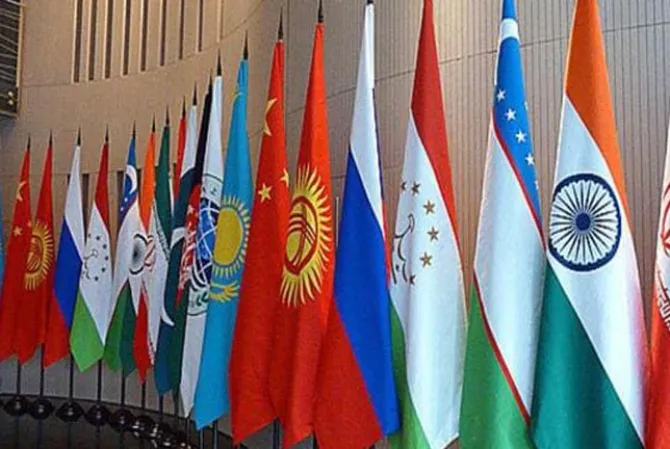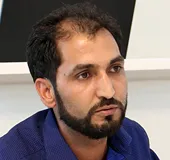-
CENTRES
Progammes & Centres
Location

भारत के वाणिज्य मंत्रालय के उद्योग संवर्धन और आंतरिक व्यापार विभाग (DPIIT) ने मई 2023 में नई दिल्ली में SCO (शंघाई सहयोग संगठन) स्टार्टअप फोरम के तीसरे संस्करण का आयोजन किया गया, जिसका उद्देश्य नवाचार और आपसी सहयोग को बढ़ावा देना है ताकि सदस्यों देशों में ज्ञान के आदान-प्रदान का एक तंत्र स्थापित किया जा सके. भारत में स्टार्टअप के क्षेत्र में तेज़ी से बदलाव आया है, जहां तकनीकी प्रगति, आर्थिक गतिशीलता और सरकारी पहल जैसे कारक महत्वपूर्ण साबित हुए हैं. ऐसे बदलावों के मद्देनजर, नई दिल्ली ने SCO में “नवाचार और स्टार्टअप पर विशेष कार्य समूह” बनाने की ज़रूरत पर बात की गई. SCO के स्टार्टअप फोरम की पहली दो बैठकों का आयोजन बहुपक्षीय जुड़ाव को बढ़ावा देने के लिए किया गया था ताकि आपसी सहयोग के क्षेत्रों की पहचान की जा सके. भारत का स्टार्टअप तंत्र नवाचार और मौजूदा व्यवस्था में आए अचानक बदलाव (डिजरप्शन) का परिणाम है, जिसे विभिन्न तबकों के प्रतिभाशाली लोगों द्वारा संचालित किया जाता है. भारत का अनुभव से CO देशों, ख़ासकर मध्य एशियाई गणतंत्रों के लिए फायदेमंद साबित हो सकता है. इसके अलावा, विभिन्न भौगोलिक क्षेत्रों में स्टार्टअप की शुरुआत और नवाचार से दुनिया भर के निवेशकों को भारत में डिजिटल कनेक्टिविटी की ताकत का लाभ उठाने और उससे जुड़ी संभावनाओं के दोहन का मौका मिल सकता है.
भारत का स्टार्टअप तंत्र नवाचार और मौजूदा व्यवस्था में आए अचानक बदलाव (डिजरप्शन) का परिणाम है, जिसे विभिन्न तबकों के प्रतिभाशाली लोगों द्वारा संचालित किया जाता है.
बीते सालों में, भारत ने स्टार्टअप कंपनियों और उद्यमियों को समर्थन देकर उद्यमशीलता और तक़नीकी कौशल का एक मज़बूत तंत्र स्थापित किया है. 1990 के दशक के शुरुआत से ही प्रतिभाशाली पेशेवरों के बीच उद्यमशीलता के ज़रिए मौजूदा व्यवस्था में रातों-रात परिवर्तन के प्रति ख़ासा उत्साह देखा गया. इस दिशा में निर्णायक मोड़ तब आया, जब 2014 में भारत सरकार ने स्टार्टअप इंडिया अभियान की घोषणा की. इस पहल का उद्देश्य क्रांतिकारी नीतियों, वित्तीय प्रोत्साहन, और आवश्यक बुनियादी ढांचे के निर्माण के माध्यम से स्टार्टअप कंपनियों को बढ़ावा देना है. कुशल इंजीनियरों, प्रौद्योगिकीविदों और पेशेवरों की मौजूदगी से उद्यमशीलता की नई लहर पैदा हुई है, जिसने औद्योगिक क्षेत्र के स्वरूप को बदला है और व्यवसाय के नियमों में भी बदलाव किया है. इसके प्रभाव को देश भर में देखा जा सकता है, जिससे उद्यमिता की संस्कृति मजबूत हुई है और विकास के नए रास्ते खुले हैं.
सरकारी सहायता और निवेश में हुई वृद्धि के कारण, जहां 2016 में भारत में 471 स्टार्टअप कंपनियां थीं, वहीं 2022 में इनकी संख्या बढ़कर 72,998 हो गई और 700,000 से अधिक नौकरियां पैदा हुईं. संयुक्त राज्य अमेरिका और चीन के बाद दुनिया का तीसरा सबसे बड़ा स्टार्टअप तंत्र भारत में है, जहां जनवरी 2022 से अक्टूबर 2022 के बीच 1,355 समझौते हुए, 27 अरब डॉलर पूंजी का निवेश किया गया. 2023 में, भारत के स्टार्टअप उद्योग में 180 अरब डॉलर के निवेश की संभावना है.
आधार और यूनिफाइड पेमेंट्स इंटरफेस (UPI) जैसे डिजिटल पब्लिक इंफ्रास्ट्रक्चर (DPI) भारत के औद्योगिक जगत में क्रांतिकारी बदलाव लेकर आया है, जिसने स्टार्टअप कंपनियों को मज़बूत आधार प्रदान किया है और ऑथेंटिकेशन प्रक्रिया (यानी उपयोगकर्ताओं की प्रमाणिकता सुनिश्चित करने की प्रक्रिया) की सुरक्षा को सुनिश्चित किया है. इसके साथ ही, इसके कारण वित्तीय लेने-देन आसान हुआ है और इससे वित्तीय समावेशिता को बढ़ावा मिला है. इन डिजिटल प्लेटफार्मों का लाभ उठाते हुए, स्टार्टअप कंपनियों ने कई नए समाधान ढूंढ़े हैं, डिजिटल पहचान का इस्तेमाल किया है और बिना किसी अवरोध के वित्तीय भुगतान की सुविधा से स्टार्टअप तंत्र के विकास को बढ़ावा दिया है. 13 मई को, SCO के सदस्य देशों ने क्षेत्र में समावेशी विकास के लिए नई दिल्ली के प्रस्ताव “DPI सदस्य देशों में डिजिटल तकनीक को अपनाने का सही रास्ता है” पर सर्वसम्मति से मुहर लगाई. वर्तमान में नेपाल, भूटान, फ्रांस, सिंगापुर, यूके, यूएई और मॉरीशस में भारत के UPI को डिजिटल लेनदेन के एक सुरक्षित मंच के रूप में इस्तेमाल किया जाता है. SCO क्षेत्र में DPI मौजूदा लागत को कम करके, माल की त्वरित आवाजाही को सुविधाजनक बनाकर और पर्यटन को बढ़ावा देकर व्यापार को बढ़ावा दे सकता है
फार्मा उद्योग और हेल्थटेक भी भारत में नवाचार के दृष्टिकोण से प्रमुख क्षेत्र रहे हैं. 2021 में, 3,548 स्टार्टअप कंपनियां काम कर रही थीं, जिनमें 2.2 अरब अमेरिकी डॉलर का निवेश किया गया था.
फार्मा उद्योग और हेल्थटेक भी भारत में नवाचार के दृष्टिकोण से प्रमुख क्षेत्र रहे हैं. 2021 में, 3,548 स्टार्टअप कंपनियां काम कर रही थीं, जिनमें 2.2 अरब अमेरिकी डॉलर का निवेश किया गया था. इसके 2025 तक 21.3 अरब अमेरिकी डॉलर तक पहुंचने का अनुमान है, जिसके कारण स्वास्थ्य-देखभाल तक पहुंच और सेवाओं के वितरण में स्टार्टअप कंपनियों की भूमिका महत्त्वपूर्ण सिद्ध होगी. 2022 में, भारत ने रूस, उज्बेकिस्तान, कजाकिस्तान, ताजिकिस्तान, तुर्कमेनिस्तान और किर्गिस्तान में क्रमशः 59.78, 12.82, 7.26, 2.7, 2.54 और 1.62 करोड़ अमेरिकी डॉलर के औषधीय उत्पादों का निर्यात किया. भारतीय स्टार्टअप कंपनियां औषधीय उत्पादों के वितरण, डिजीटलीकरण और गुणवत्ता नियंत्रण के लिए मध्य एशियाई देशों के साथ साझेदारी कर सकती हैं. मध्य एशियाई देशों में भारत से आयुष से जुड़े उत्पादों (पारंपरिक और होम्योपैथिक दवाएं) का भी आयात तेजी से बढ़ रहा है. 2022 में इन देशों में भारत का आयुष संबंधित उत्पादों का निर्यात 1.6 करोड़ अमेरिकी डॉलर था. स्टार्टअप कंपनियां नकली दवाइयों और सीमा पार भुगतान जैसी समस्याओं का सामना किए बिना मध्य एशिया में शुद्ध आयुष उत्पादों का निर्यात कर सकती हैं.
2022 में, यूरेशियाई देशों ने सेंट्रल एशिया रीजनल इकोनॉमिक कोऑपरेशन (CAREC) के तहत क्षेत्रीय एकीकरण के लिए डिजिटलीकरण को बढ़ावा देना शुरू किया. CAREC कार्यक्रम का उद्देश्य डिजिटल प्रौद्योगिकियों के एकीकरण के माध्यम से शिक्षा और स्वास्थ्य सेवाओं तक पहुंच को बढ़ावा देना है और मध्य एशिया एवं अन्य क्षेत्रों में व्यापार, वित्त और पर्यटन में बेहतर अवसर पैदा करना है. इसी तरह, CAREC डिजिटल रणनीति 2030 का उद्देश्य ई-लॉजिस्टिक प्लेटफार्मों के माध्यम से पेपरलेस सूचनाओं के आदान-प्रदान को बढ़ावा देना, स्वचालित भुगतान प्रणालियों के माध्यम से सीमा-पार माल ढुलाई को बेहतर बनाना है. इससे क्षेत्रीय डिजिटल साक्षरता के स्तर में सुधार और डिजिटल प्रौद्योगिकी का विस्तार होगा, जिसके परिणामस्वरूप, सतत विकास को बढ़ावा मिलेगा. भारत का स्टार्टअप तंत्र संभावित रूप से अन्य देशों में उद्यमशीलता को बढ़ावा देने में सक्षम है. भारत का स्टार्टअप तंत्र प्रौद्योगिकी हस्तांतरण, ज्ञान के आदान-प्रदान, बाज़ार के विस्तार, साझेदारी, निवेश, नीतिगत सुविधाओं की मांग और सामाजिक लक्ष्यों से जुड़ी पहलों के माध्यम से योगदान दे सकता है. iCreate, Dev IT और NTPC जैसे भारतीय संस्थान द्विपक्षीय समझौतों के माध्यम से उज़्बेकिस्तान में स्टार्टअप संस्कृति, DPI एवं अन्य नवाचारों को बढ़ावा देने के लिए वहां की कंपनियों के साथ मिलकर काम कर रहे हैं. CAREC कार्यक्रम के तहत भारत और SCO देशों के बीच साझेदारी के कई नए अवसर पैदा हुए हैं, जहां स्टार्टअप कंपनियों के माध्यम से ज्ञान और नवाचार का आदान-प्रदान संभव हुआ है.
भारत ने कठिन बाजारों में टिके रहने में महारत हासिल की है, इसलिए उसके अनुभव SCO देशों में स्टार्टअप शुरू करने में मददगार सिद्ध हो सकते हैं.
भारत ने कठिन बाजारों में टिके रहने में महारत हासिल की है, इसलिए उसके अनुभव SCO देशों में स्टार्टअप शुरू करने में मददगार सिद्ध हो सकते हैं. भारतीय बाजारों के अनुरूप तैयार किए गए नवाचारी समाधानों के हस्तांतरण के माध्यम से इन देशों की आवश्यकताओं को पूरा किया जा सकता है. आपसी भागीदारी को सुनिश्चित करके, भारत का स्टार्टअप तंत्र विदेशों में स्टार्टअप कंपनियों के समर्थन के लिए वित्तपोषण, मार्गदर्शन और निवेशकों के बड़े नेटवर्क तक पहुंच में सहायता कर सकता है. इसके अलावा, भारतीय स्टार्टअप कंपनियां दूसरे देशों में स्टार्टअप के लिहाज़ से अनुकूल माहौल तैयार करने के लिए नीतिगत बदलावों की मांग करने के साथ-साथ उन्हें मार्गदर्शन भी प्रदान कर सकती हैं. भारत को DPI के माध्यम से सार्वजनिक वस्तुओं और सेवाओं की वितरण प्रणाली को मज़बूत बनाने, और आंकड़ों की मदद से शिकायत निवारण प्रणाली को भी बेहतर बनाने में सहायता मिली है. DPI के माध्यम से कुछ SCO देशों, ख़ासकर मध्य एशियाई देशों में, समाज के वंचित तबकों तक सामाजिक एवं वित्तीय सहायता पहुंचाने में मदद मिल सकती है. भारत के स्टार्टअप तंत्र में विश्व स्तर पर नवाचार और उद्यमिता को बढ़ावा देने की क्षमता है, जिसके परिणामस्वरूप, विभिन्न देशों की सीमाओं पर स्टार्टअप कंपनियों के लिए अनुकूल माहौल बनाने में मदद मिलेगी.
The views expressed above belong to the author(s). ORF research and analyses now available on Telegram! Click here to access our curated content — blogs, longforms and interviews.

Ayjaz Wani (Phd) is a Fellow in the Strategic Studies Programme at ORF. Based out of Mumbai, he tracks China’s relations with Central Asia, Pakistan and ...
Read More +
Sauradeep is an Associate Fellow at the Centre for Security, Strategy, and Technology at the Observer Research Foundation. His experience spans the startup ecosystem, impact ...
Read More +